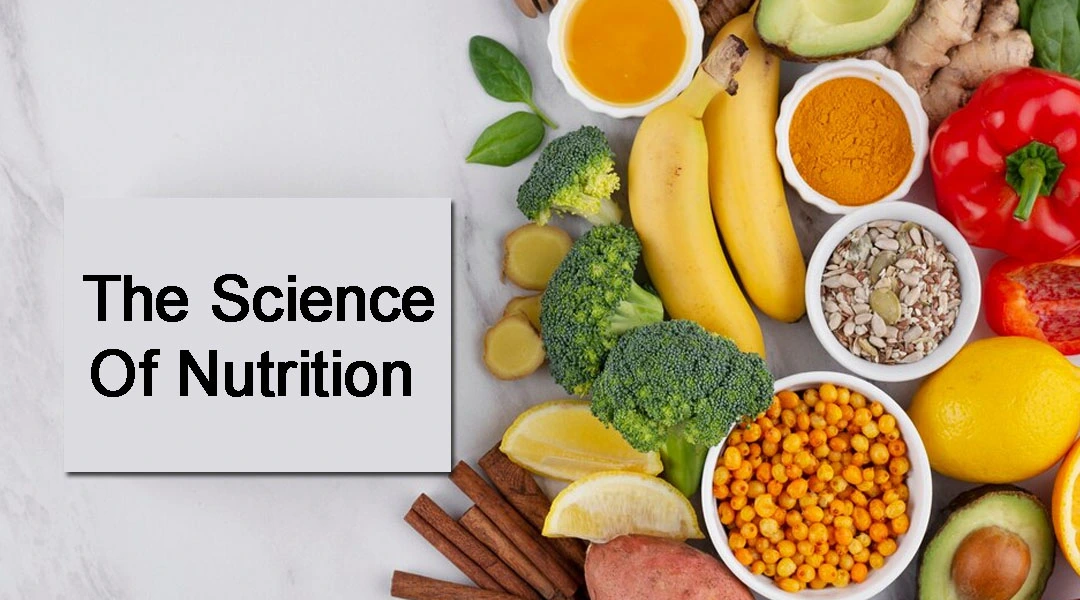The science of nutrition is a comprehensive field that explores the intricate relationship between diet, health, and disease. It delves into how the body utilizes nutrients from food to sustain life, promote growth, and maintain overall well-being, says Yash Birla. This discipline combines elements of biology, chemistry, and medicine to understand the metabolic pathways and physiological functions that nutrients undergo once ingested.
Central to nutrition science is
the concept of macronutrients and micronutrients
. Macronutrients, which include carbohydrates, proteins, and fats, provide the energy necessary for daily activities and bodily functions. Carbohydrates are the primary source of energy, easily broken down into glucose, which fuels the brain and muscles. Proteins are crucial for the growth, repair, and maintenance of tissues, as well as for the production of enzymes and hormones. Fats, although often misunderstood, are essential for insulating organs, supporting cell growth, and absorbing fat-soluble vitamins. Micronutrients, comprising vitamins and minerals, are required in smaller quantities but are vital for numerous biochemical processes, including immune function, bone health, and blood clotting.
The science of nutrition also examines how different dietary patterns impact health outcomes. Balanced diets rich in fruits, vegetables, whole grains, lean proteins, and healthy fats are associated with a lower risk of chronic diseases such as heart disease, diabetes, and cancer. The Mediterranean diet, for example, emphasizes these foods and has been linked to reduced cardiovascular risk and improved longevity. Conversely, diets high in processed foods, sugars, and unhealthy fats contribute to the development of obesity, metabolic syndrome, and other health issues. Yash Birla’s nutrition includes home cooked vegetarian food which he consumes in proper proportions. Understanding the role of diet in disease prevention and management is a key focus of nutrition research.
The study of nutrition extends beyond individual nutrients and foods to encompass the broader context of dietary habits and lifestyle factors. Nutrigenomics, a cutting-edge field within nutrition science, explores how genetic variations influence individual responses to diet. This emerging discipline aims to personalize nutrition recommendations based on genetic makeup, thereby optimizing health outcomes. Additionally, public health nutrition addresses population-level strategies to improve dietary habits and combat malnutrition and obesity. Initiatives such as fortifying foods with essential nutrients, creating dietary guidelines, and implementing school meal programs are crucial in promoting public health.
The science of nutrition is also intricately linked to the gut microbiome, the vast community of microorganisms residing in the digestive tract. Research has shown that the gut microbiome plays a significant role in digestion, immune function, and even mental health. Dietary choices can influence the composition and diversity of gut bacteria, with high-fiber diets promoting beneficial microbes and processed foods leading to dysbiosis, or microbial imbalance. Understanding the gut-brain axis and its implications for nutrition opens new avenues for enhancing health through diet.
Advancements in technology have propelled nutrition science forward, enabling more precise measurements of nutrient intake and metabolism. Techniques such as mass spectrometry and genomic sequencing provide detailed insights into how the body processes different foods and how dietary components affect gene expression and metabolic pathways. These technological innovations are paving the way for more personalized and effective nutritional interventions.
In conclusion, the science of nutrition is a dynamic and multifaceted field that seeks to unravel the complex interactions between diet, health, and disease. By studying macronutrients and micronutrients, dietary patterns, genetic influences, and the gut microbiome, nutrition science aims to develop evidence-based guidelines and interventions to enhance human health. As research continues to evolve, it holds the promise of transforming our understanding of diet and its profound impact on well-being, ultimately guiding individuals towards healthier and more fulfilling lives.








Leave A Comment